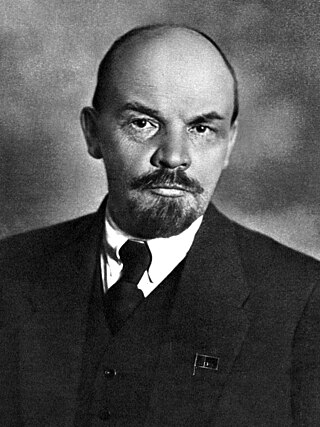
Barry Morris Goldwater was an American politician and major general in the Air Force Reserve who served as a United States senator from 1953 to 1965 and 1969 to 1987, and was the Republican Party's nominee for president in 1964.

Lee Harvey Oswald was a U.S. Marine veteran who assassinated John F. Kennedy, the 35th president of the United States, on November 22, 1963.

Malcolm X was an African American revolutionary, Muslim minister and human rights activist who was a prominent figure during the civil rights movement until his assassination in 1965. A spokesman for the Nation of Islam (NOI) until 1964, he was a vocal advocate for Black empowerment and the promotion of Islam within the African American community. A controversial figure accused of preaching violence, Malcolm X is also a widely celebrated figure within African American and Muslim communities for his pursuit of racial justice.

The 1964 United States presidential election was the 45th quadrennial presidential election. It was held on Tuesday, November 3, 1964. Incumbent Democratic President Lyndon B. Johnson defeated Republican Senator Barry Goldwater in a landslide victory. Johnson was the fourth and most recent vice president to succeed the presidency following the death of his predecessor and win a full term in his own right. Johnson won the largest share of the popular vote for the Democratic Party in history at 61.1%. As of 2024, this remains the highest popular vote percentage of any candidate since the advent of widespread popular elections in 1824.

James Harold Wilson, Baron Wilson of Rievaulx was a British statesman and politician who served as Prime Minister of the United Kingdom twice, from 1964 to 1970 and again from 1974 to 1976. He was Leader of the Labour Party from 1963 to 1976, Leader of the Opposition twice from 1963 to 1964 and again from 1970 to 1974, and a Member of Parliament (MP) from 1945 to 1983. Wilson is the only Labour leader to have formed administrations following four general elections.

Lyndon Baines Johnson, often referred to as LBJ, was the 36th president of the United States, serving from 1963 to 1969. He became president after the assassination of John F. Kennedy, under whom he had served as the 37th vice president from 1961 to 1963. A Democrat from Texas, Johnson previously served as a U.S. representative and U.S. senator.

The 1964 Summer Olympics, officially the Games of the XVIII Olympiad and commonly known as Tokyo 1964, were an international multi-sport event held from 10 to 24 October 1964 in Tokyo, Japan. Tokyo had been awarded the organization of the 1940 Summer Olympics, but this honor was subsequently passed to Helsinki due to Japan's invasion of China, before ultimately being cancelled due to World War II. Tokyo was chosen as the host city during the 55th IOC Session in West Germany on 26 May 1959.

The 1964 New York World's Fair was an international exposition at Flushing Meadows–Corona Park in Queens, New York City, United States. The fair included exhibitions, activities, performances, films, art, and food presented by 80 nations, 24 U.S. states, and nearly 350 American companies. The 646-acre (261 ha) fairground consisted of five sections: the Federal and State, International, Transportation, Lake Amusement, and Industrial areas. The fair's theme was "Peace through Understanding" and its symbol was the Unisphere, a stainless-steel model of the Earth. Initially, the fair had 139 pavilions, in addition to 34 concessions and shows.

The Avro Lancaster, commonly known as the Lancaster Bomber, is a British Second World War heavy bomber. It was designed and manufactured by Avro as a contemporary of the Handley Page Halifax, both bombers having been developed to the same specification, as well as the Short Stirling, all three aircraft being four-engined heavy bombers adopted by the Royal Air Force (RAF) during the same era.

The Civil Rights Act of 1964 is a landmark civil rights and labor law in the United States that outlaws discrimination based on race, color, religion, sex, and national origin. It prohibits unequal application of voter registration requirements, racial segregation in schools and public accommodations, and employment discrimination. The act "remains one of the most significant legislative achievements in American history".

On November 22, 1963, John F. Kennedy, the 35th president of the United States, was assassinated while riding in a presidential motorcade through Dealey Plaza in Dallas, Texas. Kennedy was in the vehicle with his wife Jacqueline, Texas Governor John Connally, and Connally's wife Nellie, when he was fatally shot from the nearby Texas School Book Depository by Lee Harvey Oswald, a former U.S. Marine. The motorcade rushed to Parkland Memorial Hospital, where Kennedy was pronounced dead about 30 minutes after the shooting; Connally was also wounded in the attack but recovered. Vice President Lyndon B. Johnson was hastily sworn in as president two hours and eight minutes later aboard Air Force One at Dallas Love Field.

The 1964 United Kingdom general election was held on Thursday 15 October 1964. It resulted in the Conservatives, led by incumbent Prime Minister Alec Douglas-Home, narrowly losing to the Labour Party, led by Harold Wilson; Labour secured a parliamentary majority of four seats and ended its thirteen years in opposition since the 1951 election. Wilson became the youngest Prime Minister since Lord Rosebery in 1894.

Afghanistan is divided into 34 provinces. The provinces of Afghanistan are the primary administrative divisions. Each province encompasses a number of districts or usually over 1,000 villages.

Kenneth Earl Burrell is an American jazz guitarist known for his work on numerous top jazz labels: Prestige, Blue Note, Verve, CTI, Muse, and Concord. His collaborations with Jimmy Smith were notable, and produced the 1965 Billboard Top Twenty hit Verve album Organ Grinder Swing. He has cited jazz guitarists Charlie Christian, Oscar Moore, and Django Reinhardt as influences, along with blues guitarists T-Bone Walker and Muddy Waters.

The 1964 United States House of Representatives elections was an election for the United States House of Representatives on November 3, 1964, to elect members to serve in the 89th United States Congress. They coincided with the election to a full term of President Lyndon B. Johnson. Johnson's landslide victory over Barry Goldwater allowed his Democratic Party to gain a net of 36 seats from the Republican Party, giving them a two-thirds majority in the House. The election also marked the first time since Reconstruction that Republicans made inroads in the Deep South, with Republicans winning seats in Georgia for the first time since 1874, and Alabama and Mississippi since 1876.

RPM was a Canadian music-industry publication that featured song and album charts for Canada. The publication was founded by Walt Grealis in February 1964, supported through its existence by record label owner Stan Klees. RPM ceased publication in November 2000.

Dorylaimida (dorylaims) is a diverse order of nematodes with both soil and freshwater species.

Vladimir Ilyich Ulyanov, better known as Vladimir Lenin, was a Russian revolutionary, politician and political theorist who was the founder and first head of government of Soviet Russia from 1917 until his death in 1924, and of the Soviet Union from 1922 until his death. The founder and leader of the Bolsheviks, Lenin led the October Revolution which established the world's first socialist state. His government won the Russian Civil War and consolidated power in a one-party state under the Communist Party. Ideologically a Marxist, his developments to the ideology are called Leninism.

Robert Francis Kennedy, also known by his initials RFK, was an American politician and lawyer. He served as the 64th United States attorney general from January 1961 to September 1964, and as a U.S. senator from New York from January 1965 until his assassination in June 1968, when he was running for the Democratic presidential nomination. Like his brothers John F. Kennedy and Ted Kennedy, he was a prominent member of the Democratic Party and is considered an icon of modern American liberalism.

The Non-Aligned Movement (NAM) is a forum of 120 countries that are not formally aligned with or against any major power bloc. It was founded with the view to advancing interests of developing countries in the context of Cold War confrontation. After the United Nations, it is the largest grouping of states worldwide.



















